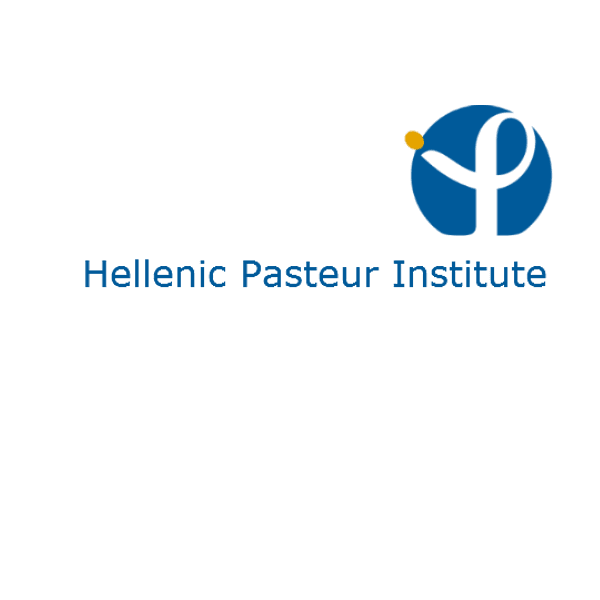
HPI - GR
Core Partner, BSL3, EU
The Hellenic Pasteur Institute (HPI) is a private, non-profit organization supervised by the Ministry of Education, Lifelong Learning and Religious Affairs and the Ministry of Health and Social Solidarity and is functioning under the Greek law concerning Research Centers and a Bilateral Agreement (3733/28-1-2009) between the Greek Government and the Pasteur Institute in Paris. Since its establishment in 1920, Hellenic Pasteur Institute (HPI) remains faithful to its mission, which is the prevention and treatment of Diseases through Basic Research, Education and Public Health Services.
The Public Health Laboratories of HPI include a Diagnostic Services Laboratory, as well as the National Reference Laboratories for Influenza, Measles/Rubella, Poliovirus/Enteroviruses. They receive around 30000 samples yearly from 10000 patients and perform >150 diagnostic tests for infectious and neuroimmunologic diseases. In this context, there are a huge number of clinical samples and isolated viruses in cell cultures available for the tasks of this project.
The Diagnostic Services Laboratory (DSL)provides a broad range of tests for both outpatients and hospitalized patients for the. The DSL has been accredited according to ISO15189 requirements for medical laboratories since 2009. It aims to constantly provide new diagnostic services related to emerging infectious pathogens in Greece and worldwide. Diagnostics tests for emerging pathogens of human and veterinary interest are performed, including West Nile, Dengue, MERS-CoV, Ebola, Marburg, Chikungunya, Sheep pox viruses and Plasmodium spp. Moreover, molecular methodologies and algorithms for the reliable identification of resistance to antiviral drugs are used as diagnostic and epidemiological tools.
The National Influenza Reference Laboratory of Southern Greece (NIRL) (World Health Organization recognized), was established in 1978 and collaborates with the Hellenic Centre for Infectious Diseases Control (KEELPNO) for the purpose of the timely detection, isolation and detailed genetic and antigenic characterization of influenza viruses from clisurveillance period. Other tasks include the laboratory surveillance of other-than-influenza respiratory viruses as well as the preparedness for the detection of respiratory emerging viruses such as MERS CoV.
The National Reference Laboratory for Measles/Rubella (NRLM/R) (World Health Organization accredited)was established in 2003 and is responsible for the laboratory confirmation of suspected measles and rubella cases in Greece and the laboratory investigation of pregnant women and children with probable congenital rubella and the investigation of clusters or imported cases of measles and rubella in Greece.
The National Poliovirus/Enterovirus Reference Laboratory (NPRL) (World Health Organization accredited)has been established and operating since 1983 and the main activities are the surveillance of poliomyelitis, the laboratory investigation of Acute Flaccid Paralysis (AFP) cases occurring in children under 15 years, as well as the supplementary laboratory investigation of samples from high risk groups, such as populations with poor living standards and sanitation and immigrants from endemic for poliovirus countries. Since 2012, the supplementary laboratory investigation also included the environmental monitoring of poliovirus circulation in wastewater samples from different regions of Greece.